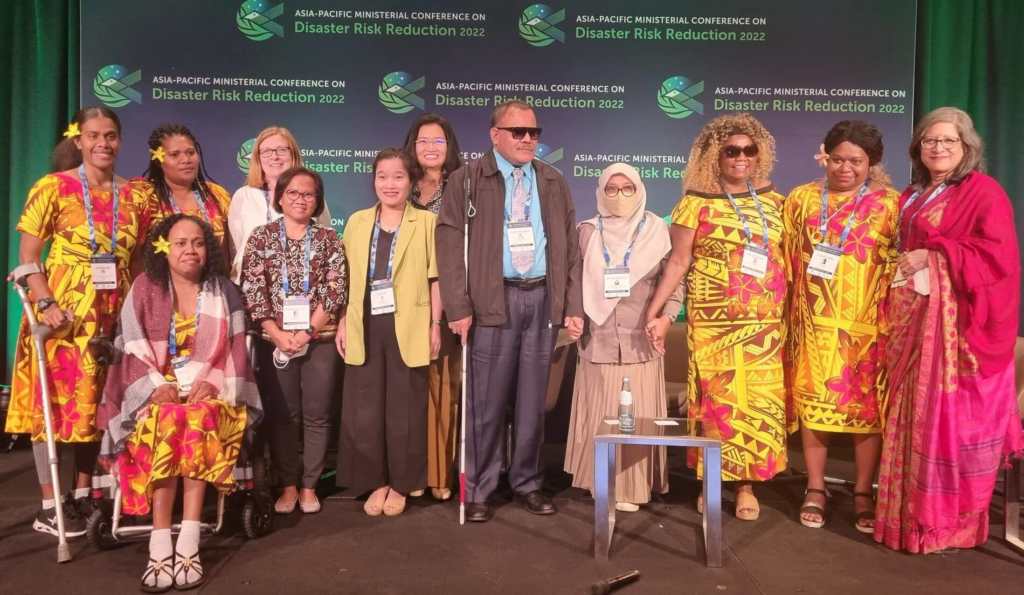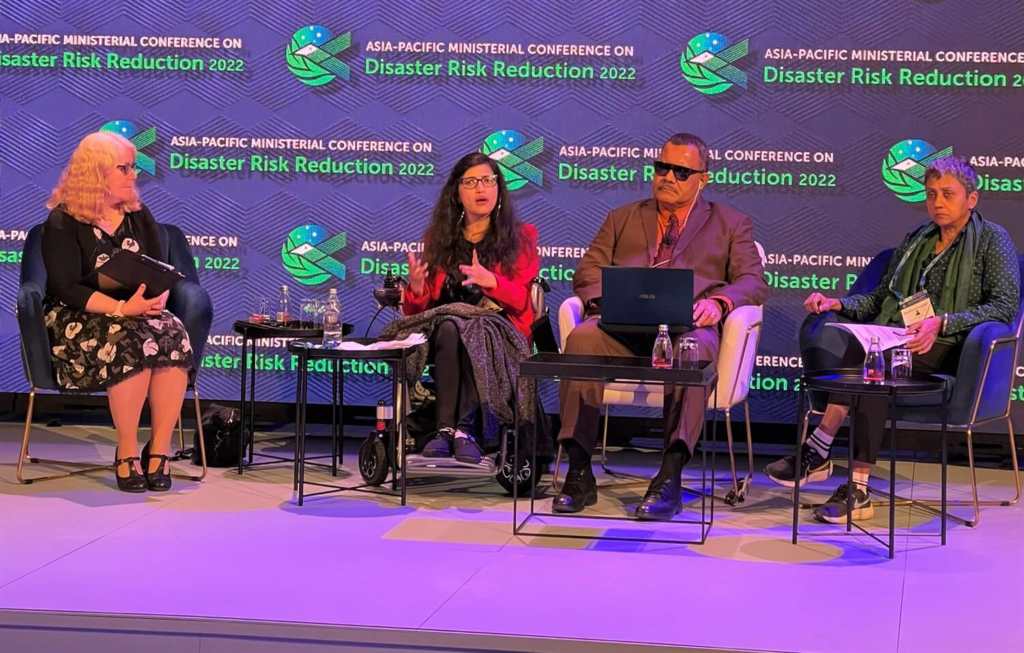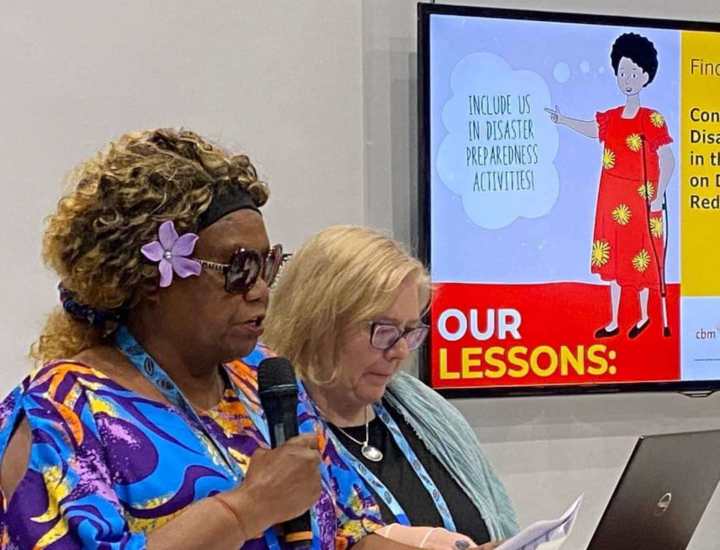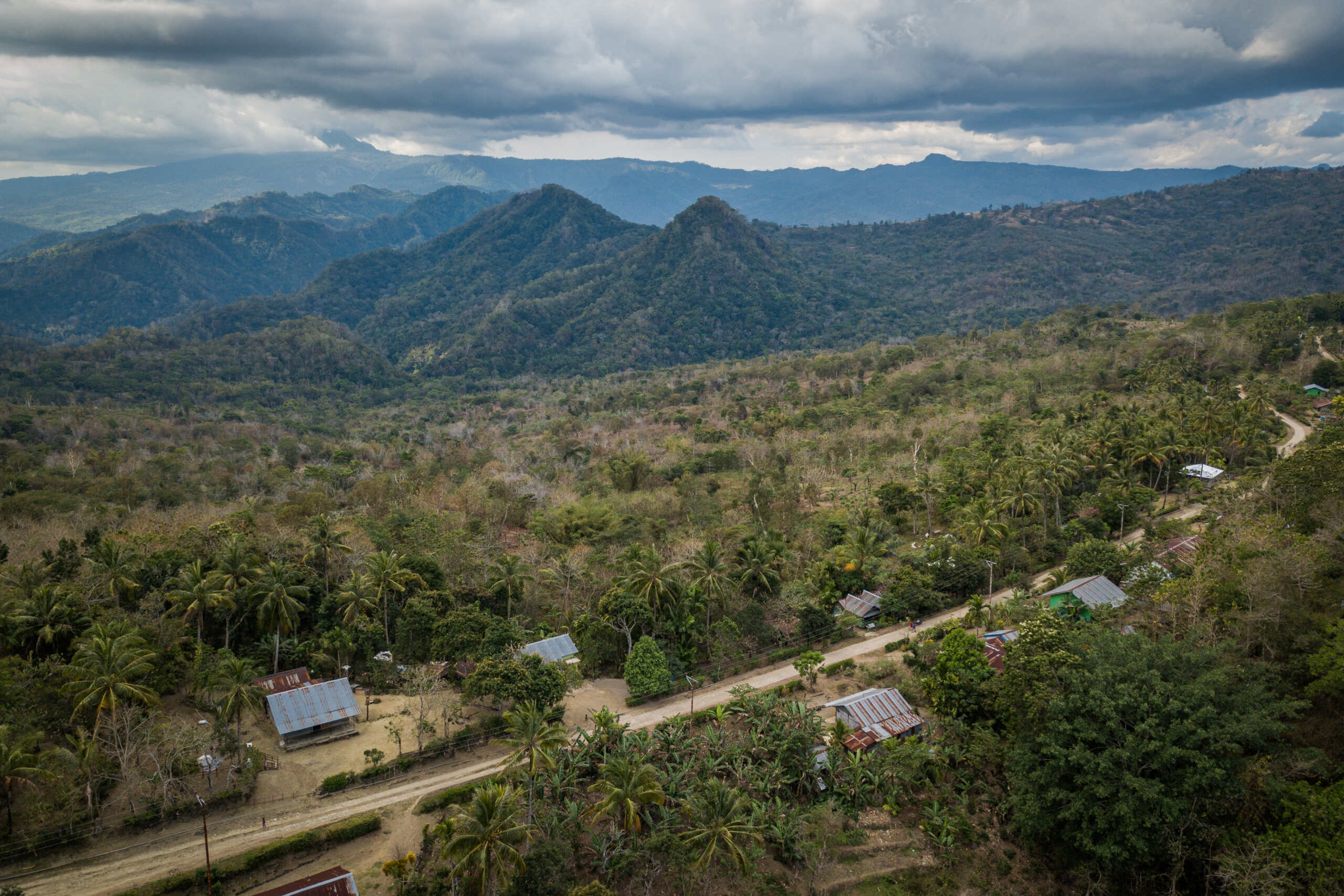Conference promotes #ResilienceForAll
Pacific, Stories | June 25, 2024
Disability movement leaders presented at the Asia-Pacific Ministerial Conference on Disaster Risk Reduction (APMCDRR) in Brisbane in September, educating stakeholders on the critical importance of including people with disabilities in preparations and the management of disasters.
Asia-Pacific is one of the most disaster-prone regions of the world, where 1 in 6 people have a disability. CBM Global’s Inclusion Advisory Group (IAG) co-hosted a partner event at the conference and helped to support a number of spotlight events and panels. These events featured disability leaders from across the region speaking about disability-inclusive disaster risk reduction (DiDRR).

One panel discussion was themed ‘Disability Inclusive DRR: How Leadership of People with Disabilities is Critical to an Effective Localisation Agenda.’ The audience heard from:
- Abia Akram (second from left below), CEO of the National Forum of Women with Disabilities (Pakistan) reported that it is unknown how many people with disabilities have been displaced by the current floods in Pakistan. She stressed the need for data disaggregation to be prioritised as well as the empowerment of people with disabilities to become leaders, so that disaster responses don’t overlook people with disabilities.
- Seta Macanawai (second from right below), CEO of the Pacific Disability Forum, who argued that people with disabilities need equity, not mere inclusion. “Inclusion gets us in the room, but equity is necessary to achieve full participation,” he said.
- Bhargavi Davar (far right below), Executive Director at Transforming Communities for Inclusion (India), who spoke about the critical issues of removing barriers in law for people with disabilities to ensure they are not left behind. “We need to recognise people with disabilities as persons first,” she said.

In a separate event, Nelly Caleb from the Vanuatu Disability Promotion and Advocacy Association (below) shared findings from the Consultation of People with Disabilities, demonstrating the real need for more funding to be delivered to DIDRR.

We also heard from Naomi Tai, Disaster Risk Reduction Officer, People with Disabilities, Solomon Islands, at a spotlight session on ‘Localisation: Elevating Local Voice and Leadership for Better Response and Resilience.’ She spoke about how important it is that organisations of people with disabilities are given a leading role in DRR.
“There is a misconception that people with disabilities cannot contribute – that we are uneducated,” Naomi said. “But people with disabilities have important perspectives that DRR processes need to take into consideration. We must be included in funding and planning; we must be included in decision-making processes.”
Find out more
- Read this article on how progress still needs to be made in DIDRR by Renee Dodds, our Acting Head of Policy and Advocacy
- Catch up on conversations by checking out #DIDRR and #ResilienceForAll
https://www.cbm.org.au/stories/asia-pacific-ministerial-conference-disaster-risk-reduction-promotes-resilience-for-all
Related Stories

Week 3 – Lent series 2026
This week, we’re reflecting with our colleague Christian, Supporter Relationship Specialist at CBM Australia, who turns to John 13:34–35 (NIV): “A new command I give...

Week 2 – Lent series 2026
As we continue our Lent journey, we’re grateful to share a heartfelt reflection from CBM Australia’s Head of Program Impact Operations, Kieran Cummins, who...

Building inclusive, climate resilient communities in Bangladesh
Highlights from DFAT Post’s visit In January 2026, representatives from the Australian High Commission in...
